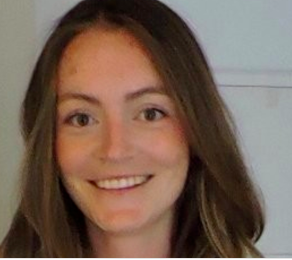In this interview, we talk to Kay Fabella, a DEI consultant and visibility strategist for underrepresented leaders. Kay works with companies to build a culture of inclusion and belonging where diverse candidates can lead and thrive. Kay is based in Madrid, Spain.
Here, Kay takes us through her definitions of diversity, equity and inclusion, what individuals and business leaders can do to build more equitable organisations, the impact of COVID-19 on DEI, and how to promote an inclusive culture in remote workplaces.
You can listen to the conversation in full (30mins)
Key Takeaways
- Diversity tells us who is in the room. Inclusion tells us that all those in the room have a voice. Equity means that everyone in the room can be heard.
- When talking about DEI, it’s helpful to focus on the system, rather than the individual. If we’re aware of the system, it’s easier to see our place in the system and how we can either perpetuate or dismantle that system with our individual behaviours.
- For white, cis-gender employees, this might mean recognising that they have experienced more “tail winds,” while others have been facing “head winds.” As a result, they have the opportunity to act as “success partners,” and try to promote and enable people who have not had the same advantages.
- As an ally, it’s important to do your own homework first. Rather than saying to someone from a historically excluded group, “What can I do?”, it’s more helpful to say, “I’ve been doing my research, and here’s how I think I could help. Do you agree?”
- With COVID-19, we’ve had to expand the meaning of “professionalism”, as employees have had no choice but to bring their “whole selves” (and their families, and their home life) to work. Companies have been forced by circumstances to be more empathetic. We have an opportunity to shift our focus from productivity to our shared humanity, and realise that we’re all humans before we’re performers.
- DEI is a lens, not a goal. It has to start with a top-down vision, but can then be applied by individuals to a given department, function or task, in the ways that make the most sense within that particular context. It’s not on HR or People - it’s on everybody.
- At an individual level, it comes down to making sure that those from historically underrepresented groups feel seen, heard and valued. This might be expressed in the form of sponsorship or mentorship programs - people don’t want handouts, they just want an equal shot.
- Building and maintaining connection in remote teams depends entirely on having an inclusive culture that promotes psychological safety. Any inequities are exacerbated in a remote environment. To address this, businesses need to proactively rethink their decision making structures and create more people-centric strategies, policies and skillsets.
You can listen to the conversation in full (30mins)
Interested to find out more?
If you’d like to learn more about Kay’s work, you can visit her website at www.kayfabella.com. Or you can listen to her podcast, Inclusion in Progress, here.
To book a free DEI assessment call, go to: https://kayfabella.com/dei-call
Further Reading
"The Future of Work Culture: How Big Tech is Redefining DEI in a Remote World" - Kay’s white paper on how major tech firms promote inclusivity while working remotely
Say more with silence: How the best remote teams reshape communication for more on how to create an inclusive remote working culture
Why your remote team is burnt out - and what you can do about it for how to promote a supportive environment when working remotely
“Racism eats culture for breakfast”: Talking diversity and equity with Melissa Andrada for more on building psychological safety in the workplace




